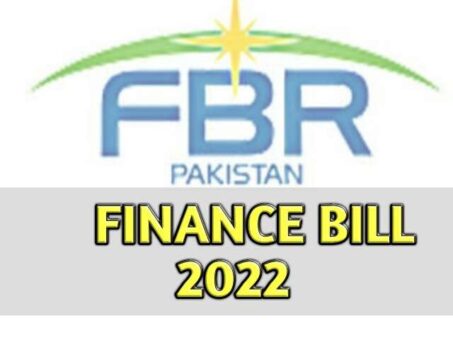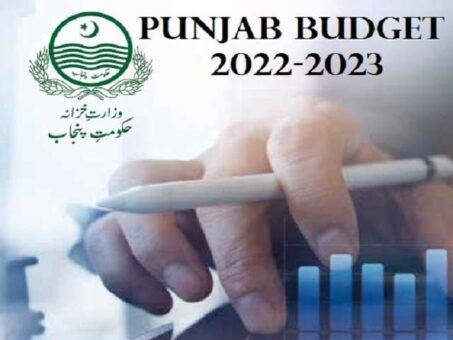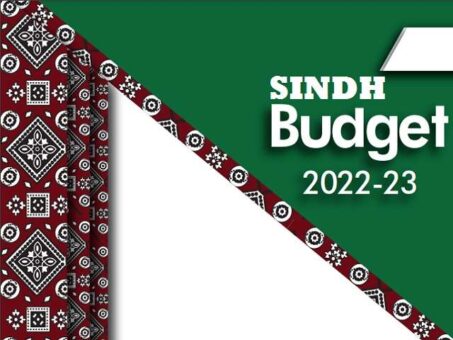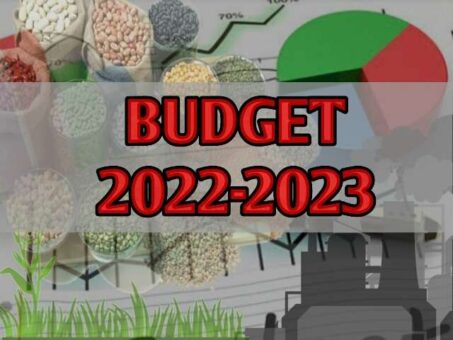ISLAMABAD: The salaried class in Pakistan is in shock over the recent changes announced by the government and revert its decision to exempt income of salaried persons up to Rs1.2 million.
The government on June 10, 2022 presented the federal budget 2022/2023 announced major tax relief for salaried class by enhancing threshold from Rs600,000 to Rs1.2 million. Besides, the government also proposed to reduce the number of income slabs.
Through the Finance Bill, 2022 the government on June 10, 2022 proposed the following rates of tax on salary income:
READ MORE: Pakistan reduces salary tax slabs to 7 in budget 2022/23
Salary income slabs and tax rates proposed through Finance Bill, 2022:
| S# | Taxable Income | Rate of Tax |
| (1) | (2) | (3) |
| 1. | Where taxable income does not exceed Rs. 600,000 | 0 |
| 2. | Where taxable income exceeds Rs. 600,000 but does not exceed Rs. 1,200,000 | Rs. 100 |
| 3. | Where taxable income exceeds Rs. 1,200,000 but does not exceed Rs. 2,400,000 | 7% of the amount exceeding Rs. 1,200,000 |
| 4. | Where taxable income exceeds Rs. 2,400,000 but does not exceed Rs. 3,600,000 | Rs. 84,000 + 12.5% of the amount exceeding Rs. 2,400,000 |
| 5. | Where taxable income exceeds Rs. 3,600,000 but does not exceed Rs. 6,000,000 | Rs. 234,000 + 17.5% of the amount exceeding Rs. 3,600,000 |
| 6. | Where taxable income exceeds Rs. 6,000,000 but does not exceed Rs. 12,000,000 | Rs. 654,000 + 22.5% of the amount exceeding Rs. 6,000,000 |
| 7. | Where taxable income exceeds Rs. 12,000,000 | Rs. 2,004,000 + 32.5% of the amount exceeding Rs. 12,000,000.” |
However, the government has taken a big U-turn and now proposed amendment to the Finance Bill, 2022 and decided to withdraw the exempt income threshold.
As per sources the government has proposed revision in salary tax rates for tax year 2023 effective from July 01, 2022. The following is the proposed rates for next tax year:
READ MORE: Massive cut in subsidies to curtail current expenditures
01. Where taxable income tax does not exceed Rs600,000: the tax rate should be zero.
02. Where taxable income exceeds Rs600,000 but does not exceed Rs1,200,000: the tax rate should be 2.5 per cent of the amount exceeding Rs1,200,000.
03. Where taxable income exceed Rs1,200,000 but does not exceed Rs2,400,000: the tax rate should be Rs15,000 + 12.5 per cent of the amount exceeding Rs1,200,000.
04. Where taxable income exceeds Rs2,400,000 but does not exceed Rs3,600,000: The tax rate should be Rs165,000 + 20% of the amount exceeding Rs2,400,000.
05. Where taxable income exceeds Rs3,600,000 but does not exceed Rs6,000,000: the tax rate should be Rs405,000 + 25 per cent of the amount exceeding Rs3,600,000.
06. Where taxable income exceeds Rs6,000,000 but does not exceed Rs12,000,000: the tax rate should be Rs1,005,000 + 32.5 per cent of the amount exceeding Rs6,000,000.
07. Where taxable income exceeds Rs12,000,000: the tax rate should eb Rs2,955,000 + 35 per cent of the amount exceeding Rs12,000,000.
READ MORE: Petroleum levy to generate Rs750 billion
The existing rate of income tax on the salary persons for tax year 2022 (July 01, 2021 – June 30, 2022) is as follow:
(2) Where the income of an individual chargeable under the head “salary” exceeds seventy-five per cent of his taxable income, the rates of tax to be applied shall be as set out in the following table, namely:—
1. Where taxable income does not exceed Rs. 600,000: 0%
2. Where taxable income exceeds Rs. 600,000 but does not exceed Rs. 1,200,000: 5% of the amount exceeding Rs. 600,000
3. Where taxable income exceeds Rs. 1,200,000 but does not exceed Rs. 1,800,000: Rs. 30,000 plus 10% of the amount exceeding Rs. 1,200,000
4. Where taxable income exceeds Rs. 1,800,000 but does not exceed Rs. 2,500,000: Rs. 90,000 plus 15% of the amount exceeding Rs. 1,800,000
5. Where taxable income exceeds Rs.2,500,000 but does not exceed Rs. 3,500,000: Rs. 195,000 plus 17.5% of the amount exceeding Rs. 2,500,000
6. Where taxable income exceeds Rs. 3,500,000 but does not exceed Rs. 5,000,000: Rs. 370,000 plus 20% of the amount exceeding Rs. 3,500,000
7. Where taxable income exceeds Rs. 5,000,000 but does not exceeds Rs. 8,000,000: Rs. 670,000 plus 22.5% of the amount exceeding Rs. 5,000,000
8. Where taxable income exceeds Rs. 8,000,000 but does not exceeds Rs. 12,000,000: Rs. 1,345,000 plus 25% of the amount exceeding Rs. 8,000,000
9. Where taxable income exceeds Rs. 12,000,000 but does not exceeds Rs. 30,000,000: Rs. 2,345,000 plus 27.5% of the amount exceeding Rs. 12,000,000
10. Where taxable income exceeds Rs. 30,000,000 but does not exceeds Rs. 50,000,000: Rs. 7,295,000 plus 30% of the amount exceeding Rs. 30,000,000
11. Where taxable income exceeds Rs. 50,000,000 but does not exceeds Rs. 75,000,000: Rs. 13,295,000 plus 32.5% of the amount exceeding Rs. 50,000,000
12. Where taxable income exceeds Rs. 75,000,000 Rs. 21,420,000 plus 35% of the amount exceeding Rs. 75,000,000.
READ MORE: Budget 2022/2023: Salient features of customs duty act







